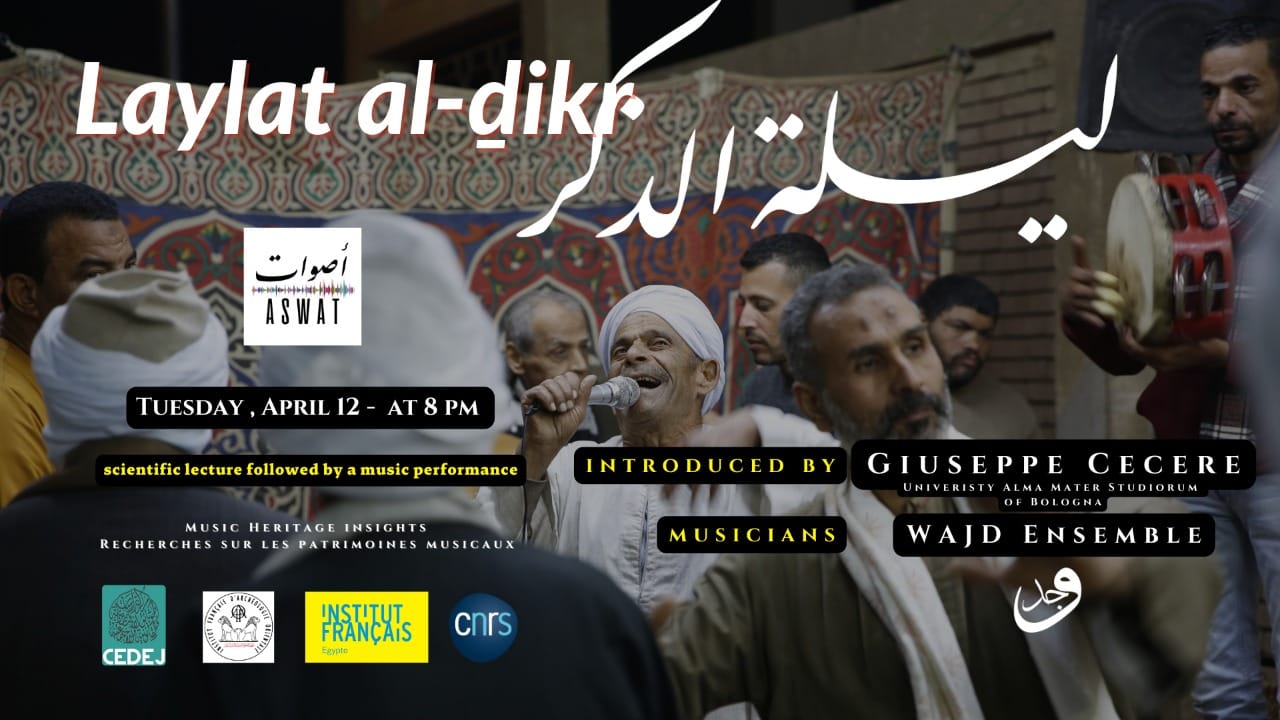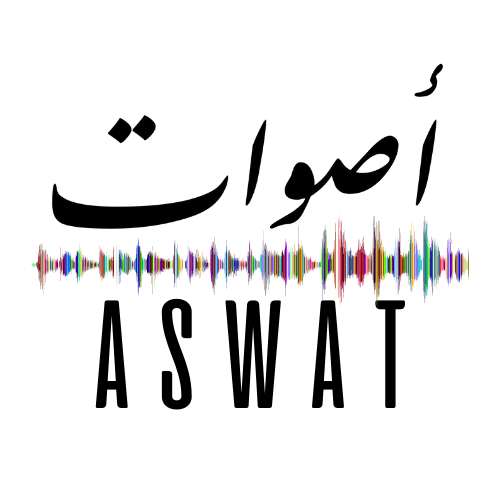Manifestations scientifiques
Abonnez-vous à la … Subscribe to the Mailing list :

ASWAT
Le mardi 12 avril 2022 à 20h00 (heure du Caire), IFE 
Laylat al-ḏikr
Trance and Spirituality in the Traditional Egyptian Music
Giuseppe Cecere
The relationship between music and trance is one of the most fascinating themes in anthropology and ethnomusicology that is not yet exhaustively investigated in Arabic music. The philosopher al-Ghazaly in his book Kitāb ādāb al-samā' wa-l-wajd, “The Book of the good manners in listening and trance”, places music in the center of the mystical research. Sama’ (listening) and Wajd (trance) are considered the two components of music practice, both for secular music (ṭarab) and religious ones (Gilbert, 1990). Culture and popular Egyptian music have their own specific aesthetics, semiotic and symbology seeing until today the trance as common focal point and the final fulfillment of the religious music practice in Egypt. The wajd expresses a common social and spiritual path for the attainment of purification and spiritual elevation, understood as detachment from contingency and the material world.
The munšidīn (singers performing the devotional chants) Abuzeid Azamil and Salim Atallah with the Wajd Ensemble will perform a repertoire of ḏikr and a vaste variety of sufi songs and musics from the Egyptian Delta tradition.
Laylat al-ḏikr is part of ASWAT series, a joint initiative by CEDEJ, IFAO and IFE, curated by Kawkab Tawfik.
The speaker:
Giuseppe Cecere is Associate Professor of Arabic Language and Literature at the University of Bologna. He was a fellow researcher at the IFAO (Institut Français d’Archéologie Orientale), Section of Arabic and Islamic Studies, in Cairo from 2010 to 2014. He holds a Ph.D. in Near Eastern Studies (History and Philology) from the University of Florence (2007). His researches specially focus on Sufi “presence” in the multicultural and multi-religious context of the Egyptian society, mainly in the Mamluk era and in contemporary times.
About the musicians:
The musicians of the WAJD Ensemble are sufi practicers of the Ṭarīqa Aḥmadiyya Ġiṭāniyya and professional musicians belonging to troupes of the Ministry of Culture. The instruments used are the Egyptian percussion: the tabla, and the frame drums mazhar and ḥāna, the ṭūra (cymbals) and the kāwālā (Egyptian single reed flute).

ASWAT
Sounds - and music - are able to shape individual and collective identities, define spaces and borders, denote cultures, transmit knowledge and influence style lives.
ASWAT is a series of music meetings and music performances focusing on Egyptian culture(s) of music that seeks to explore a range of musical practices across Egypt, and beyond, through the contribution of academic speakers and music makers, followed by a concert. The meetings will offer the opportunity to deepen some historical, religious, social and musicological aspects that interwoven in, and from, the Egyptian music heritage, addressing creation, performance and reception practice.
Aswat is a joint initiative from CEDEJ, IFAO supported by IFE.
Les sons - et la musique - sont capables de façonner les identités individuelles et collectives, de définir les espaces et les frontières, de dénoter les cultures, de transmettre les connaissances et d'influencer les styles de vies.
ASWAT est une série de rencontres et de spectacles musicaux axés sur la ou les cultures musicales égyptiennes qui vise à explorer un éventail de pratiques musicales à travers l'Égypte, et au-delà, grâce à la contribution de conférenciers universitaires et de musiciens, suivie d'un concert. Les rencontres seront l'occasion d'approfondir certains aspects historiques, religieux, sociaux et musicologiques qui s'entremêlent dans et à partir du patrimoine musical égyptien, en abordant les pratiques de création, d'interprétation et de réception.
ASWAT est une initiative conjointe du CEDEJ et de l'Ifao soutenue par l'IFE.


